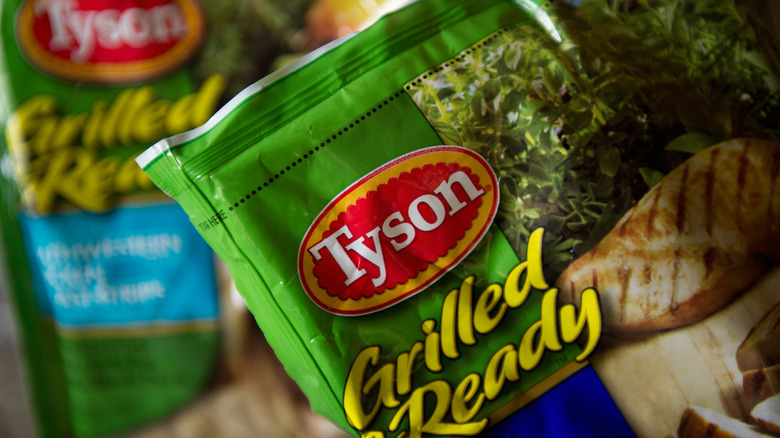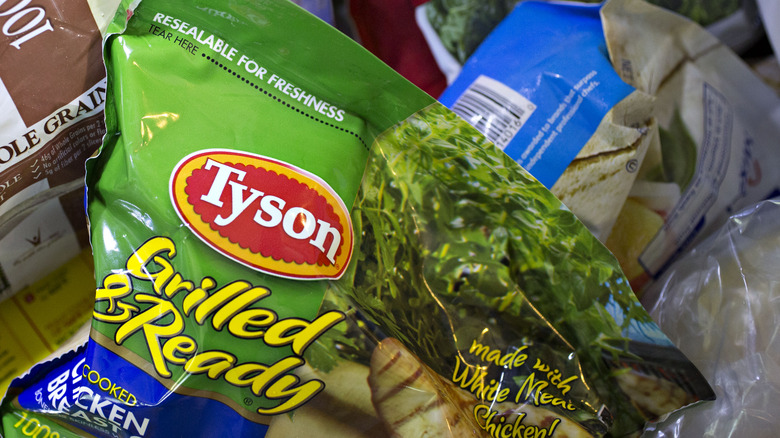What You Need To Know About The Massive Tyson Chicken Recall
A massive recall affecting Tyson cooked chicken products serviced to restaurants, supermarkets, schools, and hospitals around the country was ordered on July 4 due to a possible listeria contamination, according to the USDA. Specifically, it affects 8.5 million pounds of frozen, fully cooked food goods produced by the company at their Dexter, Missouri plant between December 26, 2020 and April 13, 2021, says Today. All the products affected carry the establishment number EST. P-7089, noted on the packaging.
Listeria can cause a serious infection, especially for individuals with compromised immune systems as well as pregnant women and newborns. There have been three hospitalization cases and one death reported that are linked to the recall, all of the cases taking place between April 6 and June 5, 2021. The CDC said the cases occurred at long-term care facilities in Texas and Delaware (via MSN).
The list of products in the recall is quite long and varied, including different types of Tyson's fully cooked boneless and skinless chicken breasts with rib meat, in strips, and for use in fajitas — all with various preparations from oven-roasted to grilled and wood-fired. All of the products were packaged in different-sized bags ranging from 12 ounces to 30 pounds, according to MSN.
Tyson Foods says recall is being undertaken out of abundance of caution
The recall appears to have hit most places that serve or sell the company's cooked chicken in one form or another. Retailers warning that they carried the problematic stock include Walmart, Publix, Wegmans, H-E-B, and Stewart's. The chicken was also sold to restaurants like Jet's Pizza, Casey's General Store, Marco's Pizza, and Little Caesar's (via USA Today).
In a statement, Tyson Foods Senior Vice President, Food Safety and Quality Assurance Scott Brooks said the company was "committed to providing safe, healthy food that people rely on every day. We are taking this precautionary step out of an abundance of caution and in keeping with our commitment to safety."
The recall is considered to be Class I, which means that the product is considered be a health hazard that could trigger serious health consequences, or possibly even death. On its site, the CDC says listeriosis kills about 260 people each year. The illness can trigger diarrhea and fever, with symptoms kicking in as early as the day of and as late as four weeks after contaminated food is eaten.

